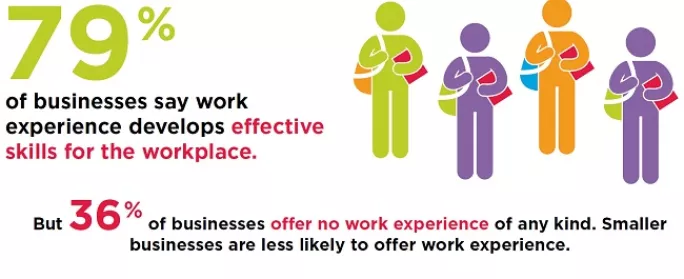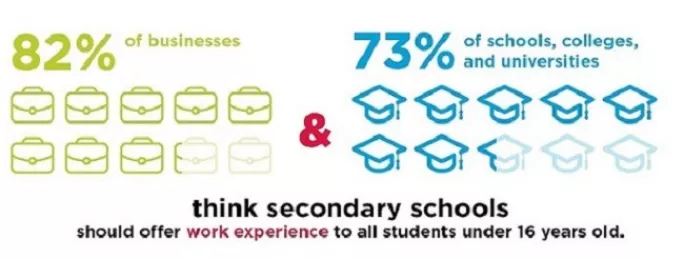Government urged to bring back compulsory work experience for under-16s

The government is being urged to reverse its “careless” decision to end compulsory work experience for schoolchildren, in order to help tackle youth unemployment.
Nearly three-quarters (73 per cent) of education leaders and 82 per cent of businesses believe secondary schools should offer work experience for pupils under the age of 16, a British Chambers of Commerce (BCC) study has found.
The survey of 3,500 business leaders and officials from schools, colleges and universities shows that 79 per cent of employers believe work experience is the most important activity to equip young people with workplace skills.
According to the poll, businesses offer a range of work experience, including one or two weeks in term-time (66 per cent), school holiday placements (47 per cent), flexible work placements (30 per cent) and visits for groups of pupils (27 per cent).

Just over a third (36 per cent) of businesses do not offer any work experience, the report finds, but many firms said they would if they had more information and support.
John Longworth, director general of the BCC, said: “Business and school leaders are clear - we won’t bridge the gap between the world of education and the world of work unless young people spend time in workplaces while still at school.
“It was careless of government to end compulsory work experience in 2012, but it is not too late to correct the mistake and work with companies and schools to ensure that every school pupil has the chance to feel the energy, dynamism, buzz and challenge of the workplace for themselves.”
He added: “Work experience is crucial to bringing down our stubbornly high youth unemployment rate. It will help ensure more young people are prepared for work. It will help close the yawning skills gaps reported by frustrated businesses across the UK, who face huge difficulty filling vacancies at every level.”

Lucy Powell, Labour’s shadow education secretary, said: “This survey is yet more evidence that David Cameron’s education policy is seriously limiting opportunities for the next generation.
“The government must now urgently break down the barriers between schools and businesses to support young people to develop the skills and experiences they need for the workplace and tackle the skills gap that is holding Britain back.”
Christine Blower, general secretary of teaching union the NUT, said: “As well as reversing these ill-conceived policy decisions, government should take steps to ensure that all young people have access to learning about and from workers from a range of industries and employment sectors.
“This would involve empowering and funding local authorities to rebuild careers advisory services that have been lost owing to government cuts, and facilitating links between schools, colleges and employers.”
A Department for Education spokesperson said: “This Government is determined to support young people to make informed choices about their careers and make it easier for employers to work with schools more effectively.
“We trust head teachers to decide what is best for their pupils - including when and how to take part in work experience or work-related learning - and are providing valuable support for them through the Careers and Enterprise Company, which is working with secondary schools and colleges to support the development of relationships with local employers.”
Keep reading for just £1 per month
You've reached your limit of free articles this month. Subscribe for £1 per month for three months and get:
- Unlimited access to all Tes magazine content
- Exclusive subscriber-only stories
- Award-winning email newsletters